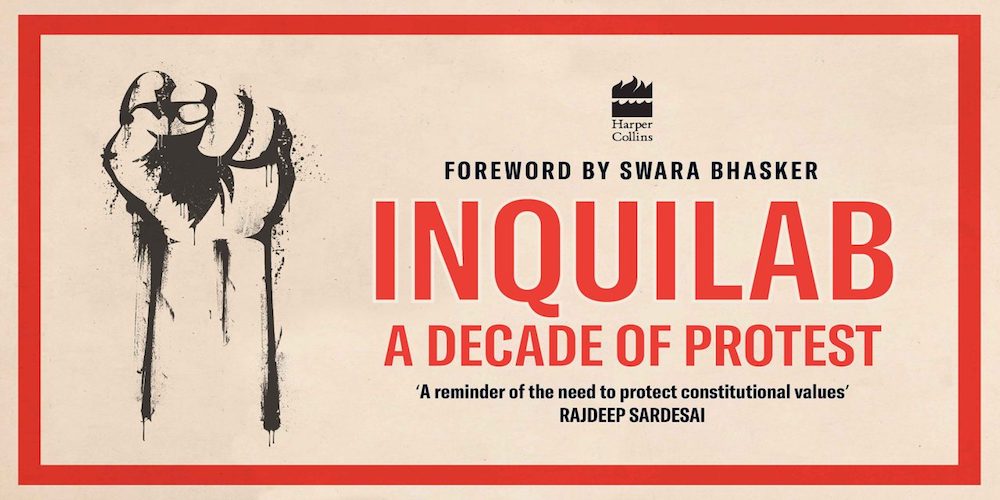Dangers Of Political Actors Claiming To Be Scholars

The book, “INQUILAB: A DECADE OF PROTEST” , which I have just read, has no “Authors” but published by HarperCollins India. Its cover only says “forward by Swara Bhaskar” at the top and a comment(?) by Rajdeep Sardasai that “A reminder of the need to protect constitutional values”.
Actor-activist Swara Bhasker’s foreword sets the mood and context for this compilation of protest letters, lectures and speeches. According to her, throughout the past decade, the state machinery “existed in a… state of paranoia with regards to citizen’s self-expression”, but the Modi government took the paranoia to new heights, criminalising dissent, using draconian laws against protesters and branding them as anti-national. The book is thus ”a reminder that voices of dissent are crucial for democracy to thrive” and accordingly takes one to Anna Hazare, Kavita Krishnan, Nayantara Sahgal, Rana Ayyub, Rohith Vemula, Kanhaiya Kumar, Romila Thapar, P Sainath, Mahua Moitra, Majid Maqbool, Chandra Shekhar Aazad, Nabiya Khan and Ramachandra Guha, among others.
Pushing students to the wall after living in JNU for certain years, a student can be supposed to raise the slogan inquilab and azadi to express resentment against imminent compulsion of leaving the campus than to oppose, what the book makes us understand, the mobilization of Hindu votes by the ruling party (BJP).
What then explains the events of 2016? Student idealism is always there but students choose to bandwagon with senior faculty or resourceful scholars This leads to aggregation and transmutation of their worries into national issues at upper levels of political contestation. Thereby the students are pushed to the wall.
The process is usually mediated by mob power. It can easily drive the actors to hide behind it and harmonize the group by jointly voicing anti-national slogans or something irrational or dirty.
This was how the anti-government parties fought it out recently on the campuses. It had a major political spinoff. When the scholarly community chooses to oppose dominant Hindu majority, then, in the name of scholarly neutrality, it is mandated to examine the role of religion in a cross-section of time or analyse it within a historical perspective. Hence they are mandated to examine the role of dominant Islam and dominant Christianity in the past and presented before the people a holistic picture of religion in politics in India.
Without working out the salience of political religions in earlier historical periods – that is , during the Muslim and British rule – they behaved like political (motivated) actors in the garb of scholars. This undermines the legitimacy and regard for scholarship.
A scholar in public view is believed to look at things through the scholarly lens even when he is in the company of not-so-scholarly go-getters. His voice matters for the uninitiated till he reveals himself to be a ‘blue jackal’.
The scholarly discourse of nation and democracy which was the need of the day when North Indian universities became the site of mob violence was replaced by highly personalized definitions of these concepts as the idea was to deny to Hindu society and its religious practices a role in consolidation of a cultural nation in India.
A thing to remember is that a small slip toward such indiscretion on the part of scholars may open the flood gates for political bias and related distortions to pollute public life in India. And we see it everywhere today.
The events in JNU and other central universities as recorded in this book may be regarded as making a contribution to it.
Sushil Kumar is Former Professor of International Politics, JNU, New Delhi



